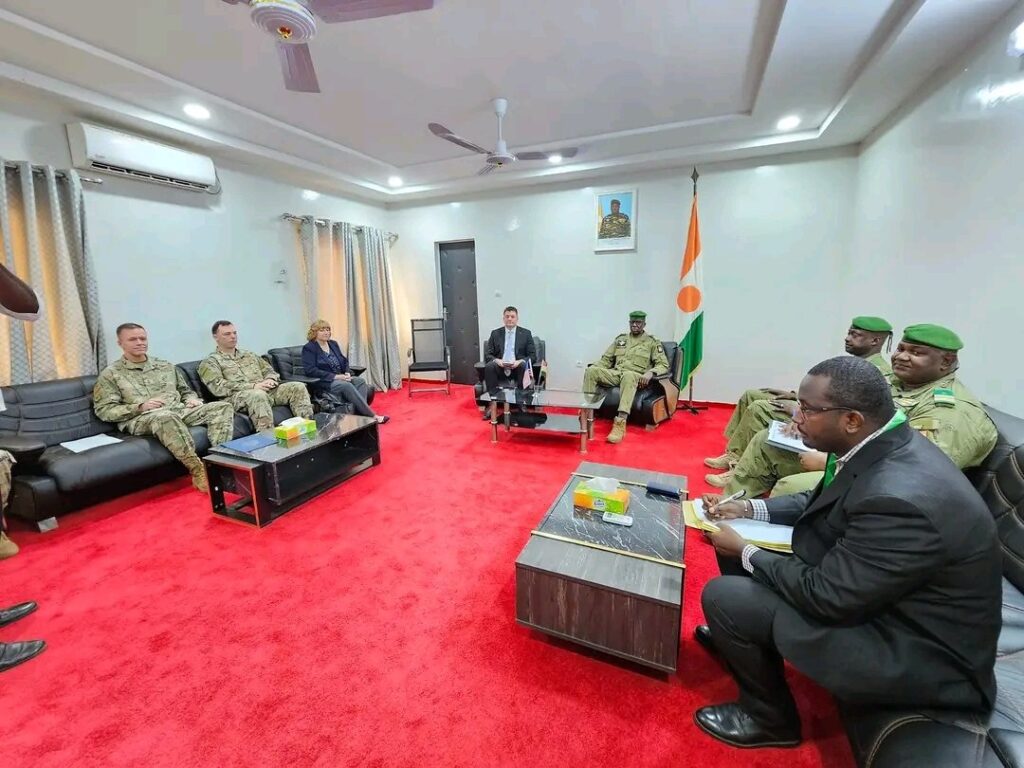ADF STAFF
U.S. and Nigerien officials have agreed on a timeline for the withdrawal of U.S. troops and opened the door for future collaboration between the two countries on development and security issues.
After five days of discussions, the two sides issued a joint statement saying that U.S. service members will leave the country by September 15.
Delegations from the countries agreed to procedures that allow for the entry and exit of U.S. personnel, including flight clearances. Niger confirmed it will guarantee the security of U.S. forces during the withdrawal.
At the end of the meetings, both sides recognized more than a decade of successful security cooperation.
“The U.S. Department of Defense and the Nigerien Ministry of National Defense recall the joint sacrifices of Nigerien and U.S. forces in the fight against terrorism and commend each other’s efforts to build up the Nigerien Armed Forces. The Parties undertake to continue cooperation in areas of common interest,” the statement said. “The withdrawal of U.S. forces from Niger does not affect the continuation of U.S.-Niger development relations.”
The U.S. Department of Defense (DoD) delegation was led by the Assistant Secretary of Defense for Special Operations and Low-Intensity Conflict Christopher Maier and the Director of Joint Force Development in the Joint Chiefs of Staff, Lt. Gen. Dagvin Anderson. The delegation of the Ministry of National Defense of Niger was led by Chief of Staff of the Army Col.-Maj. Mamane Sani Kiaou.
In recent years, the U.S. had about 1,000 military and civilian personnel in the country supporting operations at Air Base 101 in Niamey and Air Base 201 near Agadez. In 2013, the two countries signed a status of forces agreement that allowed the U.S. to position manned and unmanned aircraft in the country, primarily to monitor extremists.
The collaboration often was successful. Niger saw an 80% drop in terror-related deaths in 2022. During the same year, other Sahelian countries saw sharp increases in attacks. However, after a July 2023 coup, the U.S. curtailed operations in Niger. In March 2024, Niger’s ruling National Council for the Safeguard of the Homeland (CNSP) announced it was suspending the security partnership and requested that U.S. forces leave the country.
The U.S. has begun removing sensitive, lethal and hazardous equipment from the two bases. It plans to leave behind some items, with officials characterizing much of it as equipment to support housing. Russian mercenary forces also have been seen in a separate hangar at Air Base 101, but U.S. officials do not believe equipment left behind will be shared with foreign forces.
“We got the strong sense in the conversations that they do not intend to share what equipment is left behind with any other party that might be here or in the future,” a defense official told CNN. “At least for the time being.”
After the meetings, U.S. officials briefed reporters and said they do not believe this marks the end of the bilateral relationship.
“We have a lengthy history with them going back well over a decade, and working with them over the course of these discussions proved out that that relationship is very strong,” a U.S. defense official told DoD news. “Obviously, we’re working against the backdrop of a much more challenging political situation.”

